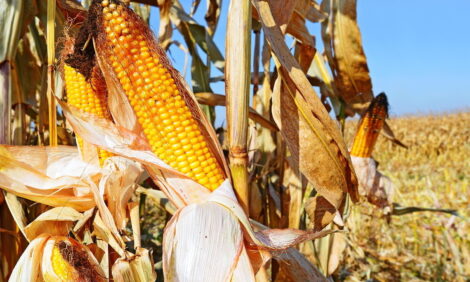



South Africa Making Progress in Eliminating FMD
SOUTH AFRICA - South Africa is making commendable progress in maintaining its Foot and Mouth Disease (FMD) free zone status, says Agriculture, Forestry and Fisheries Minister Senzeni Zokwana.The Department of Agriculture, Forestry and Fisheries, together with the provincial governments of Limpopo, Mpumalanga and KwaZulu-Natal, have finalised discussions on infrastructure, specifically fencing and dipping tanks.
The infected and protection zones are only found in the demarcated areas of Limpopo, Mpumalanga and KwaZulu-Natal provinces.
Minister Zokwana said on Monday that last month, the Scientific Commission for Animal Diseases (SCAD) of the World Organisation for Animal Health (OIE) affirmed that South Africa has made commendable progress to comply with the relevant requirements for the maintenance of its FMD free status.
“The SCAD made additional recommendations with regard to the separate dipping days in the FMD protection zone and the high surveillance area of the free zone in KwaZulu-Natal, that the dipping of cattle from the protection zone must be [done] after the cattle from the free zone.
“They also took note of the actions taken at the relevant abattoirs that slaughter animals from the protection zone, but would need clarification on how the veterinary services will ensure compliance and provide training to abattoir staff,” he said.
Minister Zokwana said they remain vigilant in dealing with the issues of FMD and its impact on the livestock sector remains. He said next year, the first batch of veterinarians will be deployed to assist in expanding the footprint in dealing with animal health issues.
Fencing and dipping tanks
As part of safeguarding animal health, Minister Zokwana said repair and maintenance of fencing is taking place on the South African/Zimbabwe border, where more than 40 kilometres of border fencing has been completed.
As a temporary measure, cattle from the protection zones and the high surveillance area of the free zone in KwaZulu-Natal are now dipped on separate days.
He said for a more permanent solution on the issue, KwaZulu-Natal has prioritised funding to construct 10 further dip tanks starting this month.
The KwaZulu-Natal Department of Agriculture and Rural Development has also committed to construct the fences on the eastern boundary of Ndumo Game Reserve in an effort to prevent buffalo and cattle contact. The project is expected to be completed in June.
Minister Zokwana said standard operating procedures (SOPs) have been developed to address the handling of carcasses in abattoirs that slaughter animals that originate from protection zones.
Currently, Limpopo will manage the two abattoirs that are slaughtering such animals, while the KwaZulu-Natal abattoir is still under construction.
FMD vaccine
The Minister said a total of 300 000 doses of FMD vaccine were ordered from Botswana Vaccine Institute and distributed to Limpopo and Mpumalanga provinces.
He said vaccination of cattle is in progress and is expected to be completed by the end of March 2015.
“A further 300 000 doses were also requested to be produced by Onderstepoort Veterinary Institute (OVI) and the batch is expected to be delivered in April this year. Studies to assess the efficacy of the FMD vaccine are being carried out by OVI and a final report is expected soon,” he said.
FMD signboards
Mpumalanga and Kwazulu-Natal have already started erecting FMD signboards at all major roads that pass through the different FMD control zones and the project is expected to be finalised by the end of this month.
Limpopo has already put up all their signs (40 signs at 20 entry/exit points), while the red line fence construction in KwaZulu-Natal is progressing well and will be finalised by the end of May this year.
FMD is one of the most contagious animal diseases and causes deaths mainly in young animals through inflammation of the heart muscle.
TheCattleSite News Desk


